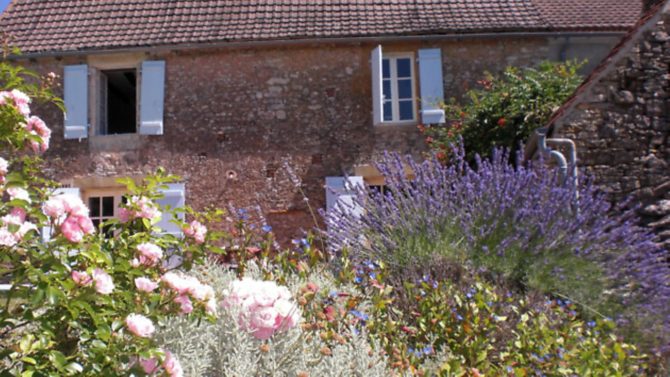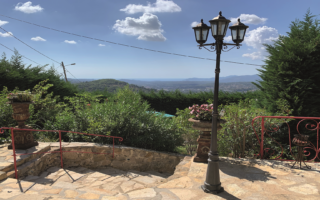Gîtes vs Holiday Lets

Are you undecided whether to move to France and run a holiday business or let out your French holiday home when you’re in the UK? Glynis Shaw explores the two options to help you make your choice

Are you happy to have a French holiday home that is let when you’re not there or do you dream of living permanently in France and running gîtes or a chambres d’hôtes? Both lifestyles bring their own delights and challenges and it’s always good to learn from the experiences of people who are already living the dream.
HOLIDAY HOME
If you love France and have already found an area that draws you back every time, it makes sense to buy your own holiday retreat, a place where you don’t have to plan your bookings in advance or pay rent, and the minute you arrive in your own holiday pad you will feel relaxed and truly at home.
A holiday home in France allows you to become part of the local community – albeit temporarily – so you can enjoy two different locations and lifestyles and relish the contrast between them. For family-minded people, it’s a great opportunity to draw generations together for quality time. France offers attractions for all agesand youngsters gain lifelong benefit from regularly experiencing a different culture and language.
The property will likely prove a good long-term capital investment and, to help pay for the running costs, it makes sense to let the house or apartment to holidaymakers when you’re not there. This is the first challenge; how, in your absence, will you safeguard your property, ensure guest satisfaction and organise all the maintenance and cleaning required to ensure a successful holiday let?
It pays to advertise your property on a website that facilitates direct contact with prospective guests. They contact you by enquiry form or phone call, you speak to them, explain how your letting works and what’s important to know, and establish a rapport. This will almost always translate into guests taking better care of the property and leaving it in a good condition afterwards.
It will also be necessary to employ reliable local people to take care of cleaning and laundry, key holding and maintenance of the pool and garden. You may find French locals if you ask around – including at the maire’s office – and in popular areas many British expats offer these services, some through management companies. It’s important to meet andclearly brief your prospective team, formally agree practical duties and financial terms, and ensure that they can always contact you.
As you won’t be on site to help guests with local knowledge, give them plenty of information and suggestions, either by email or at the property, for shopping, eating out and sightseeing to enrich their experience.
Regular holiday lets will go a long way towards covering expenses such as your mortgage, taxes and maintenance, and you may make a small profit to offset your own travelling costs, but don’t expect this enterprise to generate great wealth.
LIVE AND LET STAY
While for some a holiday home in France is ideal, others dream of relocating permanently to a beautiful area and a place they love, probably to enjoy good weather, certainly to immerse themselves in the country and lifestyle, and hopefully to make a living from holiday lets.
Those who have done so already talk of a less pressured and more healthy way of life with fresh local food, a welcome sense of community, a new experience and, for couples and families, the chance to spend more quality time together.
This does mean becoming self-employed and running a business in a foreign country, so it is an enterprise to be taken seriously – and one that demands thorough yet flexible planning. Financially, what is the minimum you could manage on? How many weeks of lettings, minus expenses, would produce that amount plus a safety cushion?
A single letting property is unlikely to generate a full living, so you may need to efficiently run a complex of several gîtes to boost income or turn your hand to other work for which you have appropriate skills and experience.
Your initial investment may be considerable, so it pays to establish a business plan for one year, two years and even five years to avoid nasty surprises. Go in with your eyes open, consider all the potential challenges in advance and have a strategy for dealing with them. Research, realism, foresight and planning are essential watchwords.
Enthusiasm is also valuable. Positive owners who go the extra mile and pass on to guests their love for the lifestyle and area, get repeat bookings and more recommendations.
Extra earnings can come through additional services like freshly cooked meals served to guests in their gîtes, sports and activities and creative or educational courses.
Even with a holiday home, it helps to speak French, but if you decide that a permanent move to France is for you, the language is even more important. In popular areas you can mix with fellow British expats, but life becomes much richer and acceptance greater when you can communicate with French people and join in with local life.
By relocating, you are leaving family and established friends behind and missing them may be painful. However, Skype and social media make it easier to stay in touch and France is only a short plane journey away. When they come to stay, the time spent together can be really special, with the opportunity for shared fun and long conversations.
I hope that these two case studies of owners of properties in France, and the stories of their own holiday letting experiences, will help you decide on which is the right French move for you and your family.
Glynis Shaw is joint MD of French Connections holiday rentals and property sales online
Tel: 01580 819303 www.frenchconnections.co.uk
Share to: Facebook Twitter LinkedIn Email


